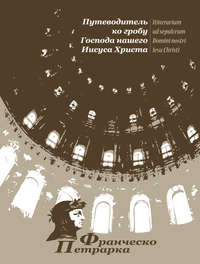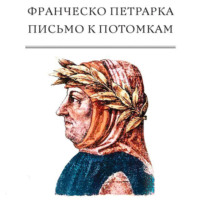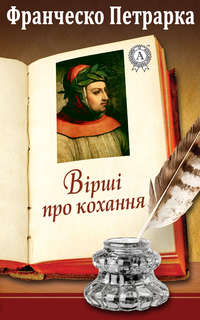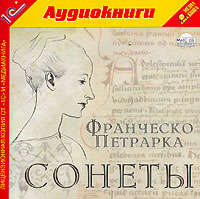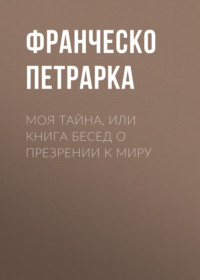 полная версия
полная версияThe Sonnets, Triumphs, and Other Poems of Petrarch
Notwithstanding Petrarch's declared dislike of Avignon, there is every reason to suppose that he passed the greater part of the winter of 1346 in his western Babylon; and we find that he witnessed many interesting scenes between the conflicting cardinals, as well as the brilliant fêtes that were given to two foreign princes, whom an important affair now brought to Avignon. These were the King of Bohemia, and his son Charles, Prince of Moravia, otherwise called Charles of Luxemburg.
The Emperor Lewis of Bavaria, who had previously made several but fruitless attempts to reconcile himself with the Church, on learning the election of Clement VI., sent ambassadors with unlimited powers to effect a reconcilement; but the Pope proposed conditions so hard and humbling that the States of the German Empire peremptorily rejected them. On this, his Holiness confirmed the condemnations which he had already passed on Lewis of Bavaria, and enjoined the Electors of the empire to proceed to a new choice of the King of the Romans. "John of Luxemburg," says Villani, "would have been emperor if he had not been blind." A wish to secure the empire for his son and to further his election, brought him to the Pope at Avignon.
Prince Charles had to thank the Pontiff for being elected, but first his Holiness made him sign, on the 22nd of April, 1346, in presence of twelve cardinals and his brother William Roger, a declaration of which the following is the substance:—
"If, by the grace of God, I am elected King of the Romans, I will fulfil all the promises and confirm all the concessions of my grandfather Henry VII. and of his predecessors. I will revoke the acts made by Lewis of Bavaria. I will occupy no place, either in or out of Italy, belonging to the Church. I will not enter Rome before the day appointed for my coronation. I will depart from thence the same day with all my attendants, and I will never return without the permission of the Holy See." He might as well have declared that he would give the Pope all his power, as King of the Romans, provided he was allowed the profits; for, in reality, Charles had no other view with regard to Italy than to make money.
This concession, which contrasts so poorly with the conduct of Charles on many other occasions, excited universal indignation in Germany, and a good deal even in Italy. Petrarch exclaimed against it as mean and atrocious; for, Catholic as he was, he was not so much a churchman as to see without indignation the papal tiara exalted above the imperial crown.
In July, 1346, Charles was elected, and, in derision, was called "the Emperor of the Priests." The death of his rival, Lewis of Bavaria, however, which happened in the next year, prevented a civil war, and Charles IV. remained peaceable possessor of the empire.
Among the fêtes that were given to Charles, a ball was held at Avignon, in a grand saloon brightly illuminated. Thither came all the beauties of the city and of Provence. The Prince, who had heard much of Laura, through her poetical fame, sought her out and saluted her in the French manner.
Petrarch went, according to his custom, to pass the term of Lent at Vaucluse. The Bishop of Cavaillon, eager to see the poet, persuaded him to visit his recluse residence, and remained with Petrarch as his guest for fifteen days, in his own castle, on the summit of rocks, that seemed more adapted for the perch of birds than the habitation of men. There is now scarcely a wreck of it remaining.
It would seem, however, that the Bishop's conversation made this retirement very agreeable to Petrarch; for it inspired him with the idea of writing a "Treatise on a Solitary Life." Of this work he made a sketch in a short time, but did not finish it till twenty years afterwards, when he dedicated and presented it to the Bishop of Cavaillon.
It is agreeable to meet, in Petrarch's life at the shut-up valley, with any circumstance, however trifling, that indicates a cheerful state of mind; for, independently of his loneliness, the inextinguishable passion for Laura never ceased to haunt him; and his love, strange to say, had mad, momentary hopes, which only deepened at their departure the returning gloom of despair. Petrarch never wrote more sonnets on his beloved than during the course of this year. Laura had a fair and discreet female friend at Avignon, who was also the friend of Petrarch, and interested in his attachment. The ideas which this amiable confidante entertained of harmonizing success in misplaced attachment with honour and virtue must have been Platonic, even beyond the feelings which Petrarch, in reality, cherished; for, occasionally, the poet's sonnets are too honest for pure Platonism. This lady, however, whose name is unknown, strove to convince Laura that she ought to treat her lover with less severity. "She pushed Laura forward," says De Sade, "and kept back Petrarch." One day she recounted to the poet all the proofs of affection, and after these proofs she said, "You infidel, can you doubt that she loves you?" It is to this fair friend that he is supposed to have addressed his nineteenth sonnet.
This year, his Laura was seized with a defluxion in her eyes, which made her suffer much, and even threatened her with blindness. This was enough to bring a sonnet from Petrarch (his 94th), in which he laments that those eyes which were the sun of his life should be for ever eclipsed. He went to see her during her illness, having now the privilege of visiting her at her own house, and one day he found her perfectly recovered. Whether the ophthalmia was infectious, or only endemic, I know not; but so it was, that, whilst Laura's eyes got well, those of her lover became affected with the same defluxion. It struck his imagination, or, at least, he feigned to believe poetically, that the malady of her eyes had passed into his; and, in one of his sonnets, he exults at this welcome circumstance.10 "I fixed my eyes," he said, "on Laura; and that moment a something inexpressible, like a shooting star, darted from them to mine. This is a present from love, in which I rejoice. How delightful it is thus to cure the darling object of one's soul!"
Petrarch received some show of complacency from Laura, which his imagination magnified; and it was some sort of consolation, at least, that his idol was courteous to him; but even this scanty solace was interrupted. Some malicious person communicated to Laura that Petrarch was imposing upon her, and that he was secretly addressing his love and his poetry to another lady under a borrowed name. Laura gave ear to the calumny, and, for a time, debarred him from her presence. If she had been wholly indifferent to him, this misunderstanding would have never existed; for jealousy and indifference are a contradiction in terms. I mean true jealousy. There is a pseudo species of it, with which many wives are troubled who care nothing about their husbands' affection; a plant of ill nature that is reared merely to be a rod of conjugal castigation. Laura, however, discovered at last, that her admirer was playing no double part. She was too reasonable to protract so unjust a quarrel, and received him again as usual.
I have already mentioned that Clement VI. had made Petrarch Canon of Modena, which benefice he resigned in favour of his friend, Luca Christino, and that this year his Holiness had also conferred upon him the prebend of Parma. This preferment excited the envy of some persons, who endeavoured to prejudice Ugolino de' Rossi, the bishop of the diocese, against him. Ugolino was of that family which had disputed for the sovereignty of Parma with the Correggios, and against whom Petrarch had pleaded in favour of their rivals. From this circumstance it was feared that Ugolino might be inclined to listen to those maligners who accused Petrarch of having gone to Avignon for the purpose of undermining the Bishop in the Pope's favour. Petrarch, upon his promotion, wrote a letter to Ugolino, strongly repelling this accusation. This is one of the manliest epistles that ever issued from his pen. "Allow me to assure you," he says, "that I would not exchange my tranquillity for your troubles, nor my poverty for your riches. Do not imagine, however, that I despise your particular situation. I only mean that there is no person of your rank whose preferment I desire; nor would I accept such preferment if it were offered to me. I should not say thus much, if my familiar intercourse with the Pope and the Cardinals had not convinced me that happiness in that rank is more a shadow than a substance. It was a memorable saying of Pope Adrian IV., 'that he knew no one more unhappy than the Sovereign Pontiff; his throne is a seat of thorns; his mantle is an oppressive weight; his tiara shines splendidly indeed, but it is not without a devouring fire.' If I had been ambitious," continues Petrarch, "I might have been preferred to a benefice of more value than yours;" and he refers to the fact of the Pope having given him his choice of several high preferments.
Petrarch passed the winter of 1346-47 chiefly at Avignon, and made but few and short excursions to Vaucluse. In one of these, at the beginning of 1347, when he had Socrates to keep him company at Vaucluse, the Bishop of Cavaillon invited them to his castle. Petrarch returned the following answer:—
"Yesterday we quitted the city of storms to take refuge in this harbour, and taste the sweets of repose. We have nothing but coarse clothes, suitable to the season and the place we live in; but in this rustic dress we will repair to see you, since you command us; we fear not to present ourselves in this rustic dress; our desire to see you puts down every other consideration. What matters it to us how we appear before one who possesses the depth of our hearts? If you wish to see us often you will treat us without ceremony."
His visits to Vaucluse were rather infrequent; business, he says, detained him often at Avignon, in spite of himself; but still at intervals he passed a day or two to look after his gardens and trees. On one of these occasions, he wrote a pleasing letter to William of Pastrengo, dilating on the pleasures of his garden, which displays liveliness and warmth of heart.
Petrarch had not seen his brother since the latter had taken the cowl in the Carthusian monastery, some five years before. To that convent he paid a visit in February, 1347, and he was received like an angel from heaven. He was delighted to see a brother whom he loved so much, and to find him contented with the life which he had embraced. The Carthusians, who had heard of Petrarch, renowned as the finest spirit of the age, were flattered by his showing a strong interest in their condition; and though he passed but a day and a night with them, they parted so mutually well pleased, that he promised, on taking leave, to send them a treatise on the happiness of the life which they led. And he kept his word; for, immediately upon his return to Vaucluse, he commenced his essay "De Otio Religioso—On the Leisure of the Religious," and he finished it in a few weeks. The object of this work is to show the sweets and advantages of their retired state, compared with the agitations of life in the world.
From these monkish reveries Petrarch was awakened by an astounding public event, namely, the elevation of Cola di Rienzo to the tribuneship of Rome. At the news of this revolution, Petrarch was animated with as much enthusiasm as if he had been himself engaged in the enterprise. Under the first impulse of his feelings, he sent an epistolary congratulation and advice to Rienzo and the Roman people. This letter breathes a strongly republican spirit. In later times, we perceive that Petrarch would have been glad to witness the accomplishment of his darling object—Rome restored to her ancient power and magnificence, even under an imperial government. Our poet received from the Tribune an answer to his epistolary oration, telling him that it had been read to the Roman people, and received with applause. A considerable number of letters passed between Petrarch and Cola.
When we look back on the long connection of Petrarch with the Colonna family, his acknowledged obligations, and the attachment to them which he expresses, it may seem, at first sight, surprising that he should have so loudly applauded a revolution which struck at the roots of their power. But, if we view the matter with a more considerate eye, we shall hold the poet in nobler and dearer estimation for his public zeal than if he had cringed to the Colonnas. His personal attachment to them, who were quite as much honoured by his friendship as he was by theirs, was a consideration subservient to that of the honour of his country and the freedom of his fellow-citizens; "for," as he says in his own defence, "we owe much to our friends, still more to our parents, but everything to our country."
Retiring during this year for some time to Vaucluse, Petrarch composed an eclogue in honour of the Roman revolution, the fifth in his Bucolics. It is entitled "La Pieta Pastorale," and has three speakers, who converse about their venerable mother Rome, but in so dull a manner, that, if Petrarch had never written better poetry, we should not, probably, at this moment, have heard of his existence.
In the midst of all this political fervour, the poet's devotion to Laura continued unabated; Petrarch never composed so many sonnets in one year as during 1347, but, for the most part, still indicative of sadness and despair. In his 116th sonnet, he says:—
"Soleo onde, e 'n rena fondo, e serivo in vento."I plough in water, build on sand, and write on air.If anything were wanting to convince us that Laura had treated him, during his twenty years' courtship, with sufficient rigour, this and other such expressions would suffice to prove it. A lover, at the end of so long a period, is not apt to speak thus despondingly of a mistress who has been kind to him.
It seems, however, that there were exceptions to her extreme reserve. On one occasion, this year, when they met, and when Petrarch's eyes were fixed on her in silent reverie, she stretched out her hand to him, and allowed him to detain it in his for some time. This incident is alluded to in his 218th sonnet.
If public events, however, were not enough to make him forget his passion for Laura, they were sufficiently stirring to keep his interest in them alive. The head of Rienzo was not strong enough to stand the elevation which he had attained. Petrarch had hitherto regarded the reports of Rienzo's errors as highly exaggerated by his enemies; but the truth of them, at last, became too palpable; though our poet's charitable opinion of the Tribune considerably outlasted that of the public at large.
When the papal court heard of the multiplied extravagances of Rienzo, they recovered a little from the panic which had seized them. They saw that they had to deal with a man whose head was turned. His summonses had enraged them; and they resolved to keep no measures with him. Towards the end of August, 1347, one of his couriers arrived without arms, and with only the symbol of his office, the silver rod, in his hand. He was arrested near Avignon; his letters were taken from him and torn to pieces; and, without being permitted to enter Avignon, he was sent back to Rome with threats and ignominy. This proceeding appeared atrocious in the eyes of Petrarch, and he wrote a letter to Rienzo on the subject, expressing his strongest indignation at the act of outrage.
Petrarch passed almost the whole of the month of September, 1347, at Avignon. On the 9th of this month he obtained letters of legitimation for his son John, who might now be about ten years old. John is entitled, in these letters, "a scholar of Florence." The Pope empowers him to possess any kind of benefice without being obliged, in future, to make mention of his illegitimate birth, or of the obtained dispensation. It appears from these letters that the mother of John was not married. He left his son at Verona under the tuition of Rinaldo di Villa Franca. Before he had left Provence in this year, for the purpose of visiting Italy, he had announced his intention to the Pope, who wished to retain him as an honour to his court, and offered him his choice of several church preferments. But our poet, whose only wish was to obtain some moderate benefice that would leave him independent and at liberty, declined his Holiness's vague offers. If we consider that Petrarch made no secret of his good wishes for Rienzo, it may seem surprisingly creditable to the Pontiff's liberality that he should have even professed any interest in the poet's fortune; but in a letter to his friend Socrates, Petrarch gives us to understand that he thought the Pope's professions were merely verbal. He says: "To hold out treasures to a man who demands a small sum is but a polite mode of refusal." In fact, the Pope offered him some bishopric, knowing that he wanted only some benefice that should be a sinecure.
If it be asked what determined him now to leave Avignon, the counter-question may be put, what detained him so long from Italy? It appears that he had never parted with his house and garden at Parma; he hated everything in Avignon excepting Laura; and of the solitude of Vaucluse he was, in all probability, already weary.
Before he left Avignon, he went to take leave of Laura. He found her at an assembly which she often frequented. "She was seated," he says, "among those ladies who are generally her companions, and appeared like a beautiful rose surrounded with flowers smaller and less blooming." Her air was more touching than usual. She was dressed perfectly plain, and without pearls or garlands, or any gay colour. Though she was not melancholy, she did not appear to have her wonted cheerfulness, but was serious and thoughtful. She did not sing, as usual, nor speak with that voice which used to charm every one. She had the air of a person who fears an evil not yet arrived. "In taking leave of her," says Petrarch, "I sought in her looks for a consolation of my own sufferings. Her eyes had an expression which I had never seen in them before. What I saw in her face seemed to predict the sorrows that threatened me."
This was the last meeting that Petrarch and Laura ever had.
Petrarch set out for Italy, towards the close of 1347, having determined to make that country his residence for the rest of his life.
Upon his arrival at Genoa he wrote to Rienzo, reproaching him for his follies, and exhorting him to return to his former manly conduct. This advice, it is scarcely necessary to say, was like dew and sunshine bestowed upon barren sands.
From Genoa he proceeded to Parma, where he received the first information of the catastrophe of the Colonna family, six of whom had fallen in battle with Rienzo's forces. He showed himself deeply affected by it, and, probably, was so sincerely. But the Colonnas, though his former patrons, were still the enemies of a cause which he considered sacred, much as it was mismanaged and disgraced by the Tribune; and his grief cannot be supposed to have been immoderate. Accordingly, the letter which he wrote to Cardinal Colonna on this occasion is quite in the style of Seneca, and more like an ethical treatise than an epistle of condolence.
It is obvious that Petrarch slowly and reluctantly parted with his good opinion of Rienzo. But, whatever sentiments he might have cherished respecting him, he was now doomed to hear of his tragic fall.
The revolution which overthrew the Tribune was accomplished on the 15th of December, 1347. That his fall was, in a considerable degree, owing to his faults, is undeniable; and to the most contemptible of all faults—personal vanity. How hard it is on the great mass of mankind, that this meanness is so seldom disjoined from the zeal of popular championship! New power, like new wine, seems to intoxicate the strongest heads. How disgusting it is to see the restorer of Roman liberty dazzled like a child by a scarlet robe and its golden trimming! Nevertheless, with all his vanity, Rienzo was a better friend to the republic than those who dethroned him. The Romans would have been wise to have supported Rienzo, taking even his foibles into the account. They re-admitted their oligarchs; and, if they repented of it, as they did, they are scarcely entitled to our commiseration.
Petrarch had set out late in 1347 to visit Italy for the fifth time. He arrived at Genoa towards the end of November, 1347, on his way to Florence, where he was eagerly expected by his friends. They had obtained from the Government permission for his return; and he was absolved from the sentence of banishment in which he had been included with his father. But, whether Petrarch was offended with the Florentines for refusing to restore his paternal estate, or whether he was detained by accident in Lombardy, he put off his expedition to Florence and repaired to Parma. It was there that he learned the certainty of the Tribune's fall.
From Parma he went to Verona, where he arrived on the evening of the 25th of January, 1348. His son, we have already mentioned, was placed at Verona, under the tuition of Rinaldo di Villa Franca. Here, soon after his arrival, as he was sitting among his books, Petrarch felt the shock of a tremendous earthquake. It seemed as if the whole city was to be overturned from its foundations. He rushed immediately into the streets, where the inhabitants were gathered together in consternation; and, whilst terror was depicted in every countenance, there was a general cry that the end of the world was come. All contemporary historians mention this earthquake, and agree that it originated at the foot of the Alps. It made sad ravages at Pisa, Bologna, Padua, and Venice, and still more in the Frioul and Bavaria. If we may trust the narrators of this event, sixty villages in one canton were buried under two mountains that fell and filled up a valley five leagues in length. A whole castle, it is added, was exploded out of the earth from its foundation, and its ruins scattered many miles from the spot. The latter anecdote has undoubtedly an air of the marvellous; and yet the convulsions of nature have produced equally strange effects. Stones have been thrown out of Mount Ætna to the distance of eighteen miles.
The earthquake was the forerunner of awful calamities; and it is possible that it might be physically connected with that memo[Pg lxviii]rable plague in 1348, which reached, in succession, all parts of the known world, and thinned the population of every country which it visited. Historians generally agree that this great plague began in China and Tartary, whence, in the space of a year, it spread its desolation over the whole of Asia. It extended itself over Italy early in 1348; but its severest ravages had not yet been made, when Petrarch returned from Verona to Parma in the month of March, 1348. He brought with him his son John, whom he had withdrawn from the school of Rinaldo di Villa Franca, and placed under Gilberto di Parma, a good grammarian. His motive for this change of tutorship probably was, that he reckoned on Parma being henceforward his own principal place of residence, and his wish to have his son beside him.
Petrarch had scarcely arrived at Parma when he received a letter from Luchino Visconti, who had lately received the lordship of that city. Hearing of Petrarch's arrival there, the Prince, being at Milan, wrote to the poet, requesting some orange plants from his garden, together with a copy of verses. Petrarch sent him both, accompanied with a letter, in which he praises Luchino for his encouragement of learning and his cultivation of the Muses.
The plague was now increasing in Italy; and, after it had deprived Petrarch of many dear friends, it struck at the root of all his affections by attacking Laura. He describes his apprehensions on this occasion in several of his sonnets. The event confirmed his melancholy presages; for a letter from his friend Socrates informed him that Laura had died of the plague on the 1st of April, 1348. His biographers may well be believed, when they tell us that his grief was extreme. Laura's husband took the event more quietly, and consoled himself by marrying again, when only seven months a widower.
Petrarch, when informed of her death, wrote that marginal note upon his copy of Virgil, the authenticity of which has been so often, though unjustly, called in question. His words were the following:—
"Laura, illustrious for her virtues, and for a long time celebrated in my verses, for the first time appeared to my eyes on the 6th of April, 1327, in the church of St. Clara, at the first hour of the day. I was then in my youth. In the same city, and at the same hour, in the year 1348, this luminary disappeared from our world. I was then at Verona, ignorant of my wretched situation. Her chaste and beautiful body was buried the same day, after vespers, in the church of the Cordeliers. Her soul returned to its native mansion in heaven. I have written this with a pleasure mixed with bitterness, to retrace the melancholy remembrance of 'my great loss.' This loss convinces me that I have nothing now left worth living for, since the strongest cord of my life is broken. By the grace of God, I shall easily renounce a world where my hopes have been vain and perishing. It is time for me to fly from Babylon when the knot that bound me to it is untied."


